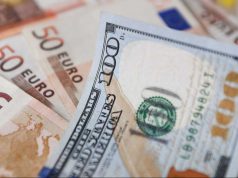Thursday the 13th February will go down in history as the day that the EU and the Organisation for Economic Cooperation and Development (OECD) struck a deal to openly report to each other on your worldwide assets, including all bank accounts, investments, trusts and pensions, etc. The privacy and data protection laws will be waived in almost all cases, in which you will have no say, by the way.
This landmark agreement goes in front of the G20 finance ministers in September of this year for their further agreement and ratification.
If the G20 agrees, then the global nonG20 countries, such as Hong Kong, will concur and comply, as is normal in these matters.
What this means is that, for example, Inland Revenue in the UK do not need your permission to see what’s in your overseas bank accounts, trusts, companies, etc.
We have already seen something similar with the onset of FATCA (Foreign Accounts Tax Compliance Agreements), where information should be reported to Inland Revenue in some cases, but not necessarily on all assets.
This new Auto Information Exchange Agreement (AIEA) is quite odd, given that Canada, Hong Kong, the US and the UK only just reinforced their privacy laws. Don’t you find that quite contrary?
To understand this, we have Mr. Snowden to thank, after his revelations of the nefarious activities of certain “national security agencies”, so the strengthening of privacy laws is perhaps just a political action. However, the ability to breach these privacy laws has at the same time been waived.
How, though, will this new international snooping agreement be implemented? The answer is in the agreement. All 11 pages of it.
It simply says that if a country’s financial regulator asks a bank or financial institution (even a trust) what value and what precisely is owned by you, that institution will be obliged by law to hand over the information to the local regulator.
Then what happens is that the regulator will store that information on a database, so that if a foreign government simply requested that information, then it can and will be readily handed over without your permission. No questions allowed about that bit, and that’s the whole intent of this new s/b AIEA.
If I was a betting man, and I am, I would take a wild guess at what’s going to happen next, which possibly will be the implementation of a US style global taxation strategy coming from the OECD countries and the G20.
This last bit is a natural extension of the s/b AIEA, it would seem.
When does the s/b AIEA come into force? Possibly at the end of 2015. It’s going to be a tough task administratively, but be certain that it’s going to happen.
The “Under The Mattress Banking Corporation” may be launched soon after this.










